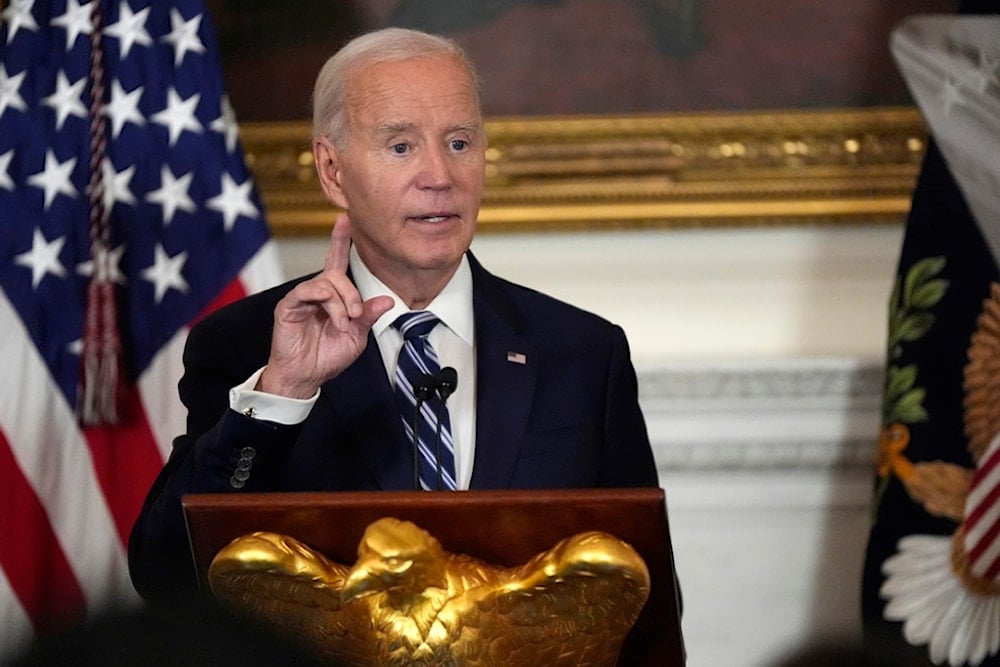Biden administration to ease aid restrictions for Syria: WSJ
Officials say that over the weekend, the administration approved a limited measure allowing the Treasury Department to issue waivers for aid organizations and companies providing critical services.
-

US President Joe Biden speaks at a reception for new Democratic members of Congress in the State Dining Room of the White House, Sunday, January 5, 2025, in Washington. (AP)
The Biden administration is set to announce on Monday plans to ease restrictions on humanitarian aid to Syria, aiming to expedite the delivery of essential supplies while maintaining sanctions that limit other forms of assistance to the new government in Damascus, The Wall Street Journal reported on Sunday.
Officials said that over the weekend, the administration approved a limited measure allowing the Treasury Department to issue waivers for aid organizations and companies providing critical services, such as water, electricity, and other humanitarian supplies.
They added that these waivers, initially valid for six months, would eliminate the need for case-by-case authorization, though safeguards are in place to prevent the misuse of supplies by Syrian authorities.
The US has already withdrawn a $10 million bounty on Ahmad al-Sharaa, also known as Abu Mohammad al-Jolani, the leader of the Hay'at Tahrir al-Sham (HTS), an Islamist group that led the offensive that ousted the government of Syrian President Bashar al-Assad.
However, the US continues to withhold a decision on lifting the extensive sanctions imposed during Syria’s 13-year civil war, seeking guarantees that Damascus will uphold commitments to protect the rights of women and the country's diverse religious and ethnic communities.
"Make no mistake, some of the rebel groups that took down Assad have their own grim record of terrorism and human rights abuses," Biden said in December after al-Assad fled the country.
"They are saying the right things now, but as they take on greater responsibility, we will assess not just their words, but their actions."
The government led by al-Sharaa is seeking international recognition to legitimize its rule. Although the group publicly severed ties with al-Qaeda years ago and has sought to present itself as more moderate, its designation as a terrorist organization complicates its efforts for legitimacy.
With the Biden administration nearing its end, decisions regarding sanctions and the potential recognition of the new Syrian government will likely fall to President-elect Donald Trump.
Mid-level US officials have engaged with HTS leaders in Damascus, while French Foreign Minister Jean-Noel Barrot and German Foreign Minister Annalena Baerbock visited Damascus on Friday. Following a meeting with al-Sharaa, Baerbock emphasized the importance of including women and Kurds in Syria’s transition process and cautioned against using European funds to establish “new Islamist structures.”
The German foreign minister also suggested it was premature for European nations to lift sanctions on Syria.
The Wall Street Journal report said that the US and its European and Middle Eastern allies agree on the urgent need for increased aid to Syria, including reconstruction funds to rebuild its devastated infrastructure.
The EU is also exploring ways to ease the flow of aid, which is currently obstructed by sanctions. However, HTS’ classification as a terrorist organization precludes it from accessing reconstruction funds and imposes stringent controls on the assistance permitted into Syria.

 3 Min Read
3 Min Read








